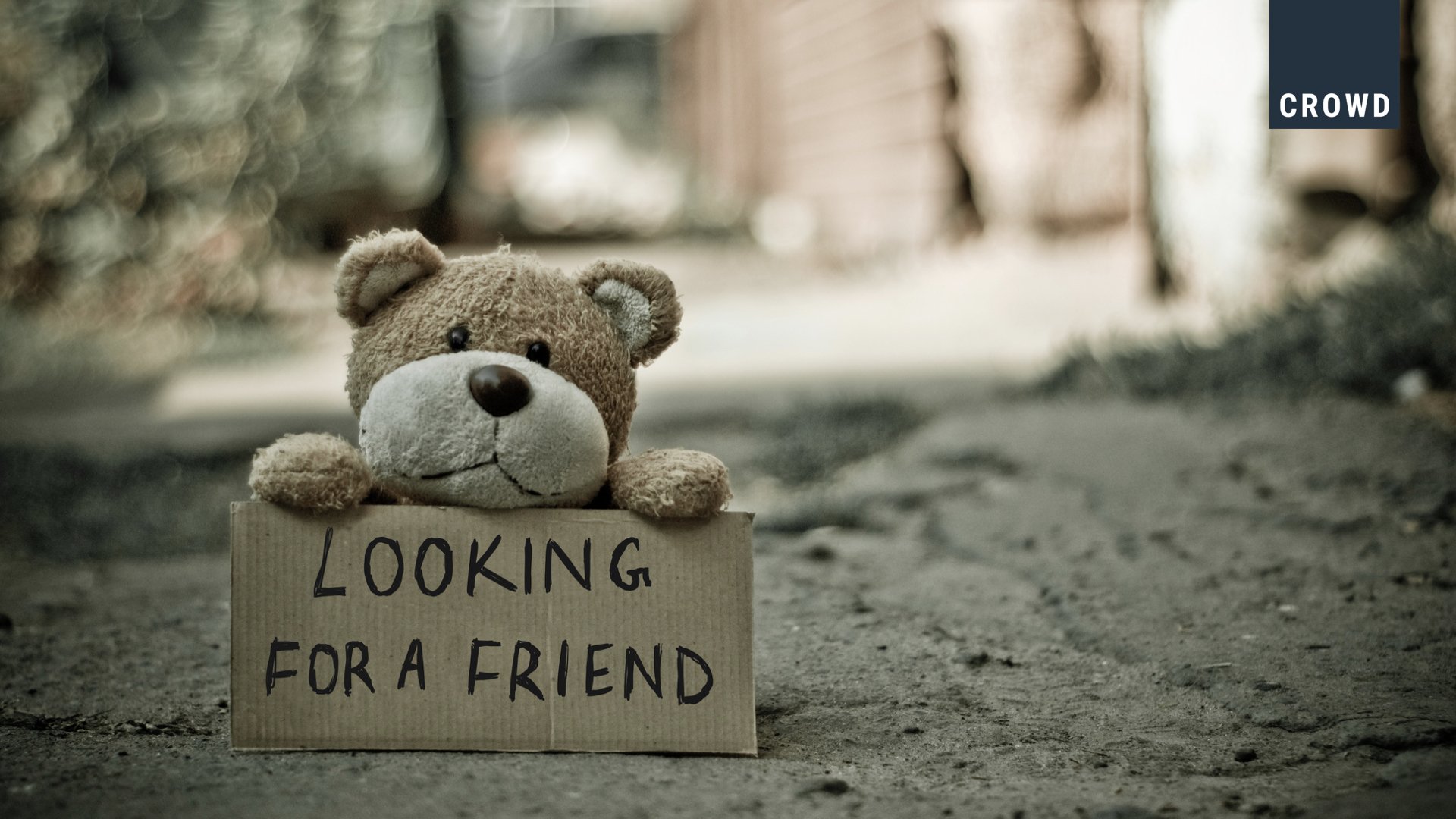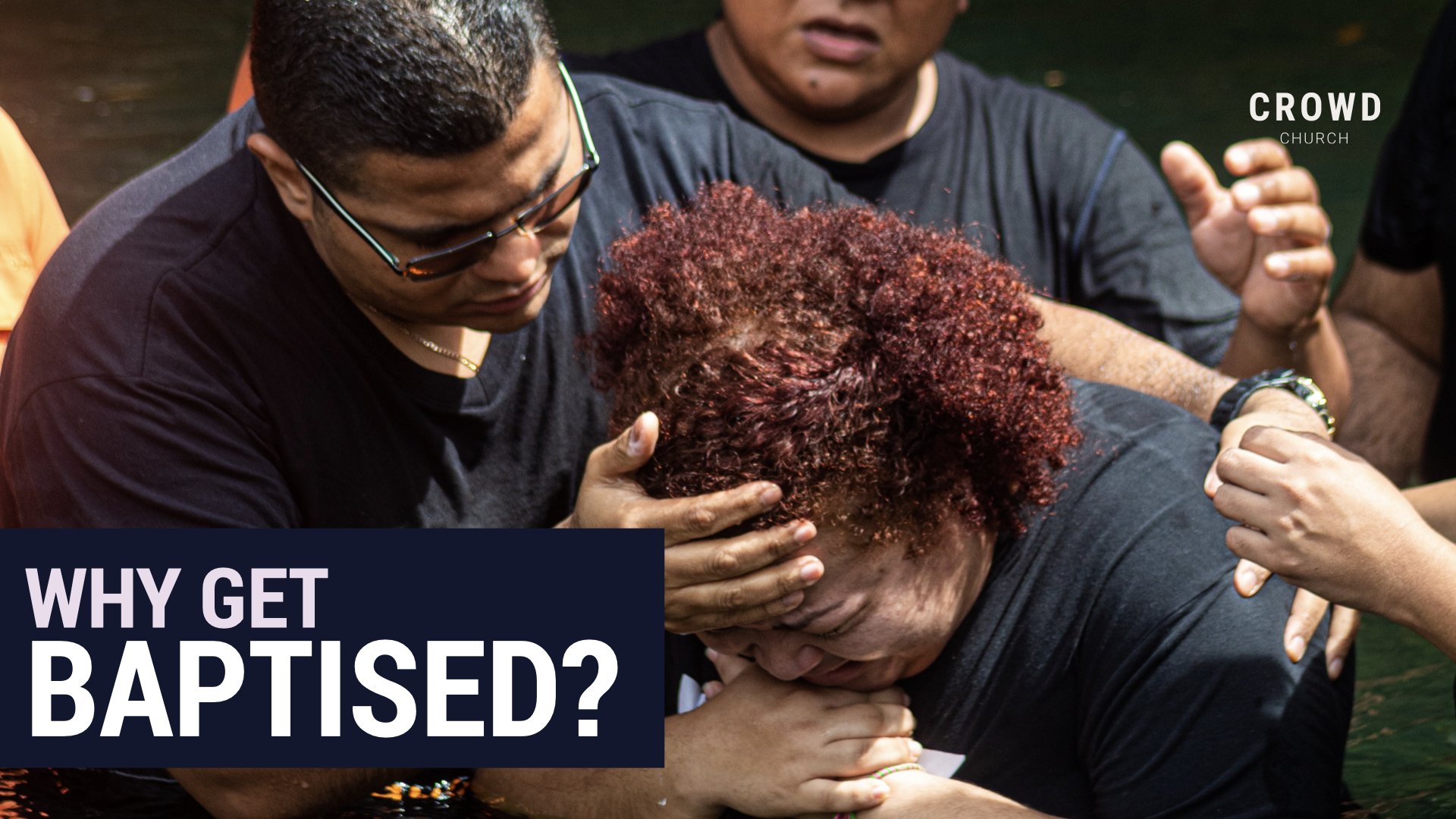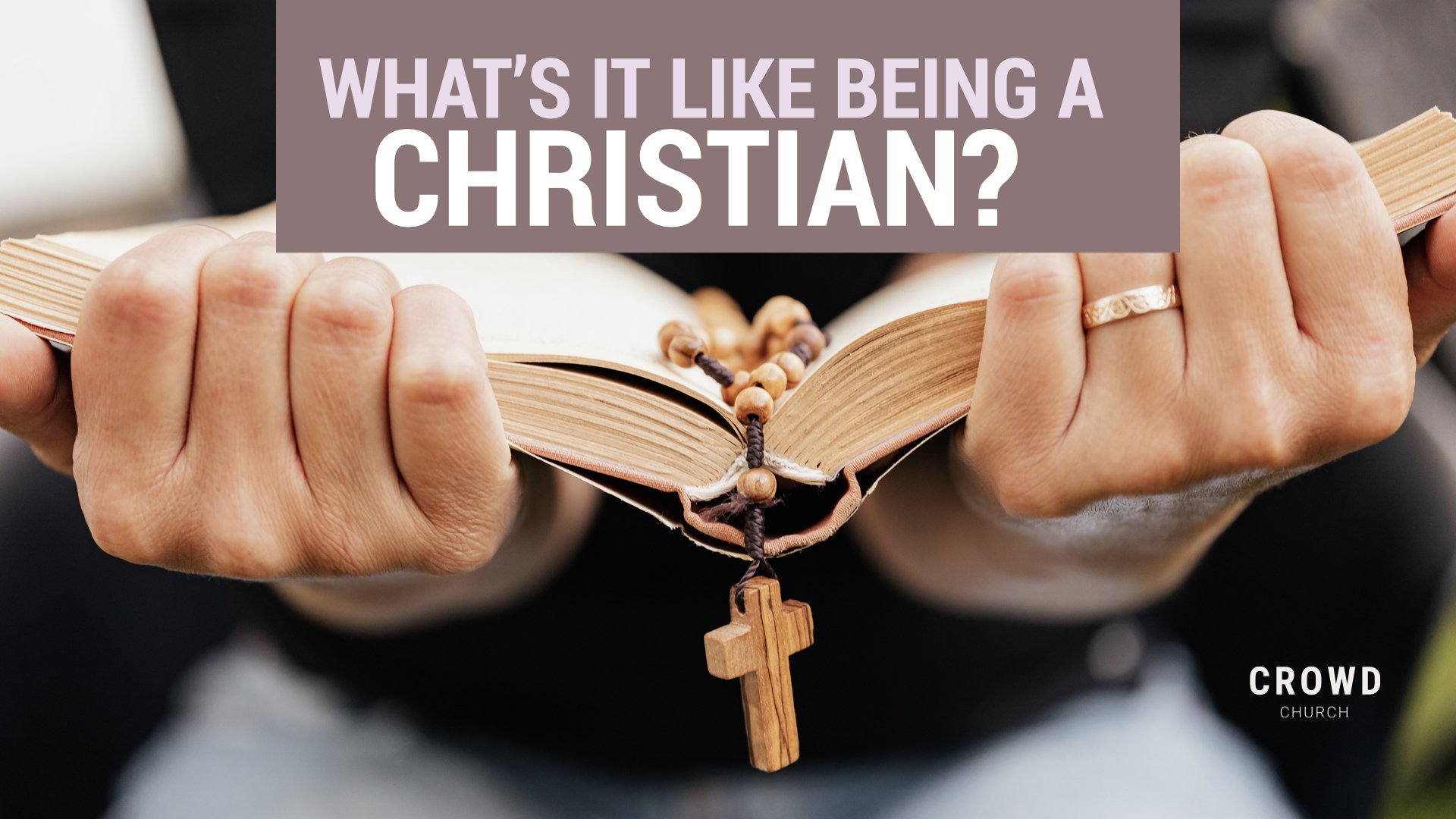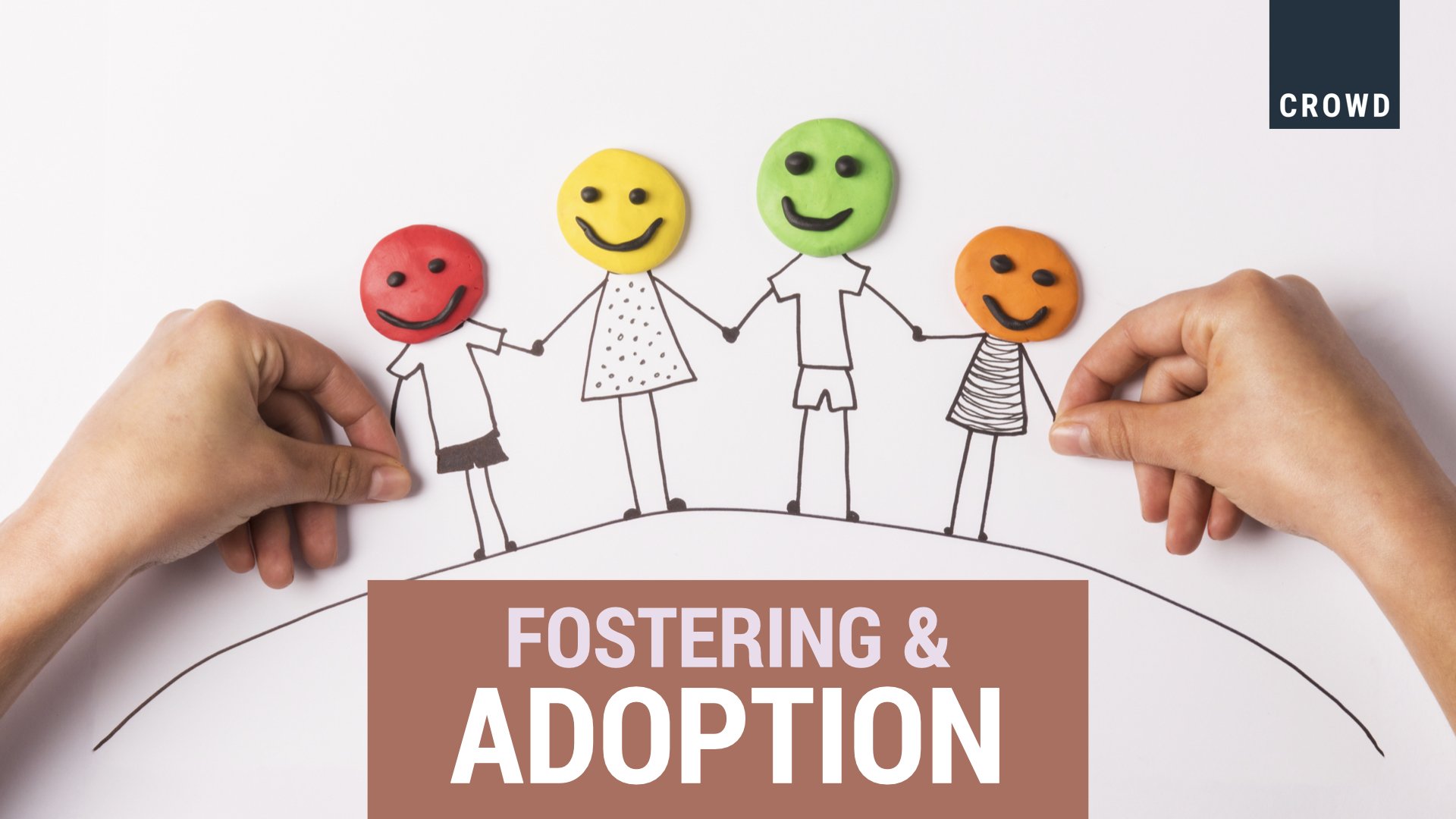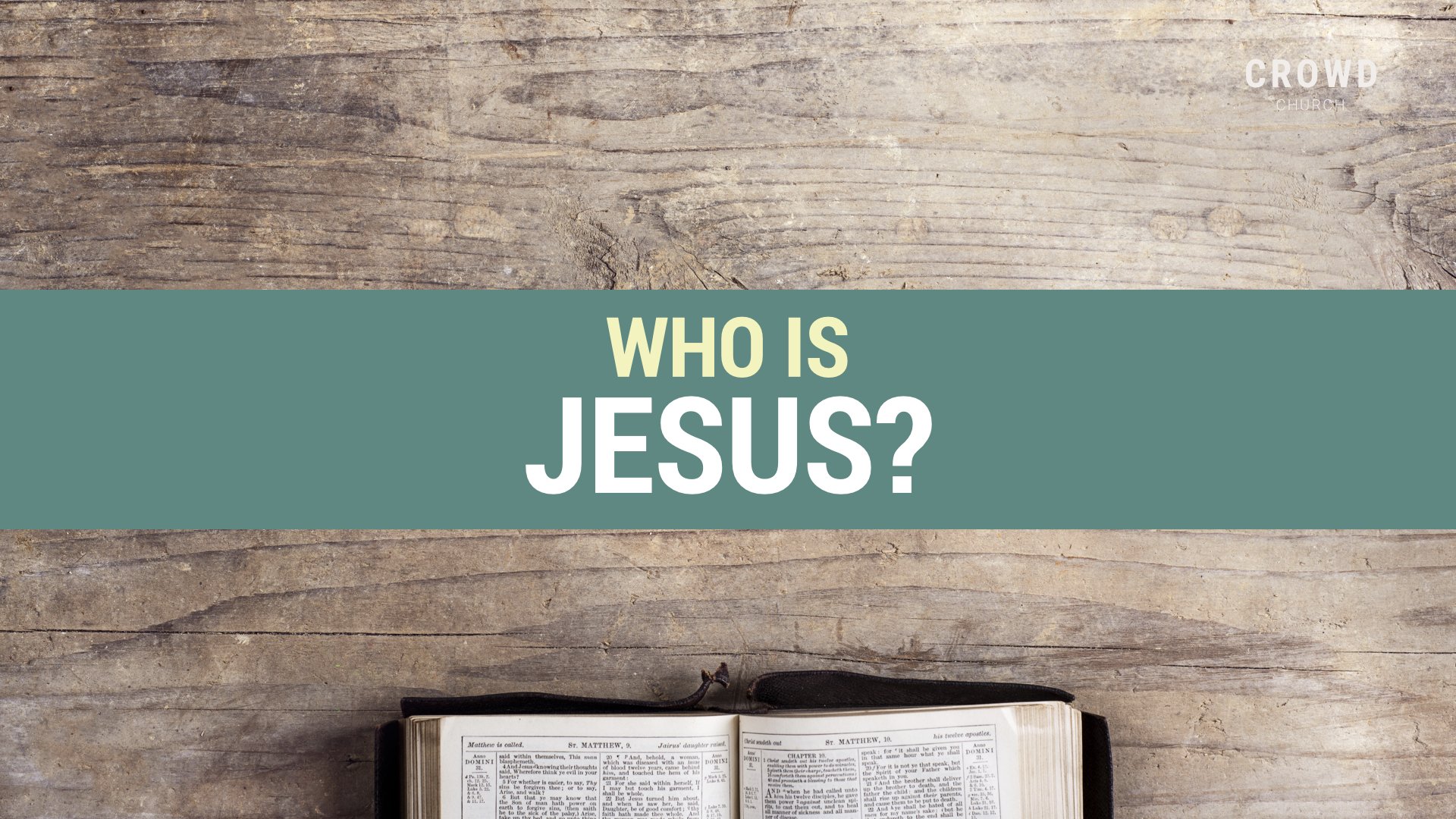What Does The Bible Say About Suffering?
Video Timeline
WELCOME
0:00 - Welcome with Matt & Anna
TALK with John Harding
07:36 - What does the Bible say about Suffering?
10:29 - The Bible's Response To Suffering
10:35 - #1 Freewill
14:09 - #2 God Uses Suffering For Our Good
18:02 - Hope In The Midst Of Suffering
23:53 - Where Is God In Our Suffering?
WORSHIP
28:07 - When I Survey with lyrics
CONVERSATION STREET with Matt & Anna
34:03 - Conversation Street
CLOSING WORSHIP
1:03:33 - King Of My Heart with lyrics
Podcast:
What does the Bible say about Suffering?
— John Harding
What does the Bible say about suffering? It's an emotive, sensitive question. I suppose what we're really asking here is what does the Bible say about my suffering? What does the Bible say about the suffering that someone I love is going through? Maybe you are thinking, Well, where is God in my suffering? Or even, Is there a God? Why would God allow this suffering in my life, or in my world if there was a God?
For some people, the presence of suffering in the world, in their own lives, causes them to question the existence of God. They say things like, how can an all-loving, all-powerful God allow suffering in the world? They don't see the presence of suffering in the world as compatible with the presence of God, or at least with the presence of God as described in the Bible. They say, Well, if God is truly loving, and they're suffering, then he can't be powerful, because if he was powerful, he would stop that suffering. Or if God is truly powerful, and there's suffering in the world, then he can't be truly loving or he would stop it.
So therefore, there can't be such a God in a world as ours because there is suffering in the world. And that's an argument that has been around since the beginning of time. Really, logically, intellectually, philosophically, I don't think it's a very good argument. But this problem, this mystery of reconciling and matching up the God of the Bible with the presence and existence of suffering, it is rarely played out at the level of logic or reason. It's an argument that rarely gets played out at the emotional level, the personal, the experiential level. That's why it's such a challenging topic.
The Bible's response to suffering
I do think the Bible offers a compelling response to the mystery of suffering. As Christians, we tend to respond to this problem in two ways.
#1 - Freewill
Firstly, Christians tend to say that God allows suffering in the world because suffering is a necessary outcome of freewill. God created humans in his image, distinct from the rest of creation, distinct from the animal kingdom, because humans are given freedom, autonomy, the ability to make their own decisions, the ability to direct their own lives and make their own choices. It's what separates us from the animal kingdom. We have become moral beings, beings capable of great good, but by the same virtue, beings capable of great evil.
So put simply, God is not responsible, therefore, for our suffering, humans are. Humans misuse the gift of freewill. We make choices that harm ourselves and that harm others. And this takes us right back to Adam and Eve. The story we read in the Bible in Genesis 1 through 3, in the garden paradise, a place of perfection, no sickness, no disease, no pain, no death. But through that first sin, their choice to take and eat from the Tree of the Knowledge of Good and Evil rather than to take from the Tree of life. That's where they went wrong, in disobeying God.
Adam and Eve brought catastrophic global consequences into this world. Bringing the first sin into a perfect creation impacted every single aspect of creation. Pain, sickness, ageing, ultimately death entered into the world, environmental damage now entered into the world, a world now capable of floods and earthquakes. And so there's a very real sense that it is us, it is humans who brought suffering into an all loving, all powerful God's perfect creation. And we now live in that corrupt broken world as a corrupt broken people. And so we suffer.
But then, of course, people will say to that argument of freewill, well, why did God create humans like that? Why did God give humans freewill? It's like giving a machine gun to a kid, just look at the potential damage that is done through that action. But of course, for us as Christians, that risk that God took in giving that gift of freewill was utterly essential and worth it. Because God only created the world for humans, God only created humans for relationship with Himself.
The whole reason why there is something rather than nothing is so that that something could freely, willingly choose to be in relationship with its creator. We are given freewill so that we have the capacity to love and to experience love. With freewill we have the capacity to harm others, of course, but without freewill, we'd simply be animals, robots, incapable of truly loving God, our Creator. So freewill is a powerful response to the mystery of suffering.
#2 - God uses suffering for our good
The second response that Christians tend to make to this problem of suffering in a world of an all-loving, all-powerful God is that God ultimately uses suffering. And God works through suffering, to bring about something good, something positive. It's the idea that there is a purpose to the suffering we experience, that suffering drives human development.
And to some extent, I imagine that all of us will have experienced this dynamic, a bit like the grit in the oyster that becomes a pearl, or the pressure on the coal that becomes a diamond, or the tearing of the muscle through the weight training and the lifting of weights, the muscle tears but it causes it to grow stronger as a result, all of us will have had experiences that have made us stronger, kinder, wiser people.
And the Bible says, Romans chapter five, verse three says,
“Not only so, but we also glory in our sufferings, because we know that suffering produces perseverance; perseverance, character; and character, hope. And hope does not put us to shame...”
Now, I used to be a school teacher, and towards the end of my teaching career, I taught mainly 17 and 18 year old boys, bright boys, I taught the philosophy of religion. And we would unpack this mystery of suffering together. And when I used to use this verse from Romans, I would start by asking the boys in the class, who likes cake? And they'd all put their hands up, and then I'd call four volunteers, four lads out to the front ready for their cake. And I would give one of the boys flour, the other whisked eggs, the other butter and the other sugar. And then I'd say, well, tuck in lads, start eating.
You see, we all like cake. But that does not mean that we will enjoy the ingredients that make up cake. And that's a little bit like this verse from Romans, we all want hope and freedom from shame. But we don't necessarily enjoy the character formation part. And we really don't like the perseverance part. I mean, to keep moving forwards and life is tough. We just want breakthrough now. And we certainly don't like the suffering part. But these things are the essential ingredients that lead us towards a transformed life, the ingredients that make us stronger, kinder, wiser people.
Suffering has the power to be transformative.
But then, of course, people will say, Well, John, If God is all-loving and all-powerful, and if suffering is for a purpose, it's meant to grow us and transform us, then why does God allow excessive suffering or pointless suffering? Or why do some people not grow and develop through their suffering? Or couldn't God have created a world where we grow and develop through pleasure and not pain? These are some of the objections that people raise. Just going through those questions and objections really takes me back to being in the classroom as a philosophy teacher all those years ago.
Hope in the midst of suffering
And I remember clearly the first time that I went to the Democratic Republic of Congo (DRC), to the Kivu, and I was a school teacher at the time, I was helping to build links between my local church, Frontline, my school, and the work that our church was doing on the Congo-Ugandan border in order to rehabilitate boy soldiers. I mean, just a desperate situation, horrific, one fuelled by Western consumerism, fuelled by our desire for diamonds and coltan mining, for mobile phones, boys maybe even just 12 years old, taken from their families, dehumanised through drugs and rape, used as cannon fodder in a conflict that has been going on and ignored for decades in this region of the Kivus, where we work, where we serve, just horrific suffering.
And yet, what I found there, alongside the suffering, alongside the poverty, alongside the conflict, what I found there was hope. Just many, many beautiful Christians who, by our standards have so little, and yet they were working tirelessly to rescue those boy soldiers, to rehabilitate them, to educate them, they were working with women who had been raped as a weapon of war, they were giving them a refuge, a safe place to live, they were giving them training, and counselling.
And what I found in that place, for the first time, was a completely different perspective on my perspective on suffering. I found there that no one was asking the question of where is God in our suffering? That made no sense to them. Rather, they were praying and thanking God for His presence with them in that place of suffering. Their focus was not on the suffering, but on how God was helping them to endure this suffering. They discovered the deep and profound truth that when you are at that point in life where Jesus is all that you have got in life, that's the point when you realise that Jesus is all you need in life.
And I came back from that trip that first time I went there, back into the classroom back into this selective boys school teaching this philosophy module on God and the problem of evil and suffering. And I remember saying to the boys in my class, boys, this idea of where is God in our suffering, to me, it just feels like an indulgence of the modern, western world.
These people that I'd met in Congo, they weren't philosophically pondering on the question of how could an all-loving, all-powerful God allow suffering in the world? They were experiencing God and encountering God and drawing on God's love and on His presence to sustain them in the hardship of each day. They were forming communities of faith, that we call churches, they were forming communities that served one another and met one another's needs and shared the resources that they had. They knew that suffering was producing perseverance, perseverance producing character. Boy, did they have character! And character was producing hope. And they held on to hope.
Just last night, I spent the night in the emergency room, having taken my 87-year-old mother into that place due to extreme, extreme pain, I mean, she was struggling. I've never seen her in so much pain. And I said to her, Mom, I just feel so helpless here as we're waiting. Is there anything I can do for you, anything I can get for you? She just said, Pray for me. So I prayed for her there in the hospital cubicle.
And honestly, I'm not sure that prayer made a great deal of difference to her pain. The pain remained and started to wear off as powerful drugs kicked in. But she said to me, John, how do people go through this sort of thing without the Lord in their lives? How do they go through this sort of thing without the presence of God with them? This world in which we live, it throws up so many big questions, so many mysteries, stuff that I can't get my head around, stuff that I've tried to study and understand academically and stuff, if I'm entirely honest with you, I still don't really understand, I still don't have any answers to.
But it seems to me that suffering is pretty certain in this life. We can't seem to escape suffering, pain and hardship. But we do get to decide how we respond to it. We do get to decide if we go through our suffering with God or without God. We do get to choose if we're going to walk through that pain and invite God's presence to be with us in that place and glorify God or if we walk through it angry at God, maybe even rejecting God and denying God.
Where is God in our suffering?
There's this little verse in the Bible in the gospels, the words of Jesus Christ spoken by Jesus in Greek, recorded in Greek. And this verse has caused all sorts of trouble for Bible translators over the centuries. It's Matthew 10:29. And Jesus says,
“What is the price of two sparrows—one copper coin? But not a single sparrow can fall to the ground without your Father knowing it.”
And the reason that Bible translators have struggled to translate this verse into English over the centuries is because if you look at the original, literal Greek words of Jesus, Jesus literally stays, not one sparrow falls to the ground without the Father. That's it. Not one sparrow falls to the ground without the Father. And so the Bible translators tend to add the knowing bit, without the father knowing, to try and make sense of what Jesus is saying here about God.
But I think this makes perfect sense, just as it is. Not one sparrow falls to the ground without the Father because I really believe that Jesus has responded to this question of where is God in our suffering? And I'll tell you where God is in our suffering.
Father God is so present with his suffering creation that he draws close to each and every sparrow in their final moments.
Where is God? He is most close to us in our suffering. And Jesus goes on to say, how much more valuable are you to God than a humble sparrow?
God wants to draw close to you in your suffering. He wants to sustain you in your suffering with his presence. One of the most ancient and frequent songs of worship of the Bible is the simple refrain, "The Lord is gracious and compassionate. God is gracious and compassionate. He is compassionate." It's a beautiful word. It's from two Latin words - passion, meaning to suffer, and com, the prefix meaning alongside, like companion.
God is compassionate. He is the co-sufferer, the one who suffers alongside his suffering creation. And so we do have a choice. Invite Him into your hardship, invite Him into your pain, invite Him into your suffering, ask Him to draw close to you, draw close to Him. We call that worship. Draw close to his Word, the Bible, draw close through community, invest in other believers and you will experience him carrying you through. Maybe he will give you breakthrough in that suffering. Maybe you will have to endure that suffering for the rest of your life. But we know this for sure that one day we will see Him in heaven in His eternal glory, we will be transformed into His likeness. Paradise, Eden restored, a place that is described as one with no more tears, or sorrow or pain or grief, or death. In that moment, we know that suffering will be over forever. Amen!
CONVERSATION STREET
With: Matt Edmundson & Anna Kettle
What is Conversation Street?
Conversation Street is part of our live stream, where the hosts (in this case, Matt & Anna) chat through John’s talk and answer questions that were sent in through the live stream. You can watch the conversation in the video, it starts at 39 min 11 seconds into the live stream, or you can go straight there by clicking here. This week’s questions and topics of conversation are:
Why is the topic of suffering so emotive for some people?
Most times, people do not know what to do with other people’s pain or how to respond to it. What has your experience been like?
Why is acknowledging pain seen as a negative at times?
Why did an omnipresent, omnipotent and omniscient God create humans if he knew sin and suffering were going to be a part of the plan?
Does God cause suffering? Why doesn’t He take it away?
More Bible Verses About Suffering
John 14:26 - But the Helper, the Holy Spirit, whom the Father will send in my name, he will teach you all things and bring to your remembrance all that I have said to you.
2 Timothy 3:12 - Indeed, all who desire to live a godly life in Christ Jesus will be persecuted,
1 Peter 4:12,13 - Beloved, do not be surprised at the fiery trial when it comes upon you to test you, as though something strange were happening to you. But rejoice insofar as you share Christ’s sufferings, that you may also rejoice and be glad when his glory is revealed.
2 Corinthians 1:3,4 - Praise be to the God and Father of our Lord Jesus Christ, the Father of compassion and the God of all comfort, who comforts us in all our troubles, so that we can comfort those in any trouble with the comfort we ourselves receive from God.
John 9:1-3 - As he passed by, he saw a man blind from birth. And his disciples asked him, “Rabbi, who sinned, this man or his parents, that he was born blind?” Jesus answered, “It was not that this man sinned, or his parents, but that the works of God might be displayed in him.
1 Peter 4:1 - Therefore, since Christ suffered in his body, arm yourselves also with the same attitude, because whoever suffers in the body is done with sin.
Romans 12:1 - Therefore, I urge you, brothers and sisters, in view of God’s mercy, to offer your bodies as a living sacrifice, holy and pleasing to God—this is your true and proper worship.
Romans 5:21 - So that, just as sin reigned in death, so also grace might reign through righteousness to bring eternal life through Jesus Christ our Lord.
Romans 8:3,4 - For God has done what the law, weakened by the flesh, could not do. By sending his own Son in the likeness of sinful flesh and for sin, he condemned sin in the flesh, in order that the righteous requirement of the law might be fulfilled in us, who walk not according to the flesh but according to the Spirit.







